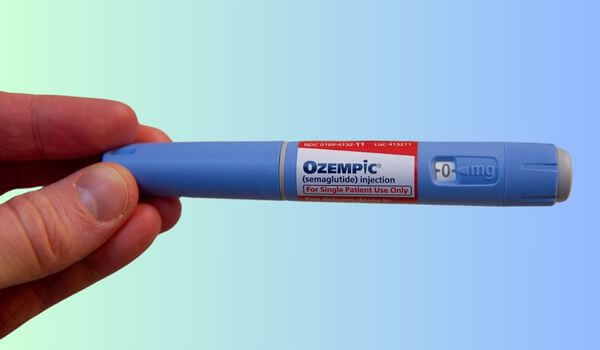 I was searching for news on teenage depression when I stumbled upon something shocking. It made me realize how important it is to talk about this. According to the Centers for Disease Control and Prevention (CDC), almost half of all high-school students reported having bouts of depression, and more than one in five had seriously considered suicide in 2021.
I was searching for news on teenage depression when I stumbled upon something shocking. It made me realize how important it is to talk about this. According to the Centers for Disease Control and Prevention (CDC), almost half of all high-school students reported having bouts of depression, and more than one in five had seriously considered suicide in 2021.
My interest in this subject stems from my concern about my 16-year-old daughter (I am posting under a pseudonym for the sake of this post to protect her privacy). Over the past eighteen months, I started noticing mood changes and behavior shifts in my daughter. Despite extensive medical evaluations, doctors did not find a physical condition to which these changes could be attributed. We all know that teenagers experience significant personality shifts due to hormonal changes, especially girls who face the added challenge of monthly cycles that can wreak havoc on their moods. However, my daughter started her periods several years ago and didn’t exhibit significant changes in personality or behavior until recently.
Why are the statistics about teenage depression rates so scary?
The CDC collected Youth Risk Behavior Survey (YRBS) data over a decade, starting in 2012, to analyze trends among U.S. high school students. This survey examines behaviors and experiences, including sexual behaviors, substance use, suicidal thoughts and behaviors, and experiences such as violence and poor mental health. It also considers external factors affecting health, such as housing, school conditions, and levels of parental monitoring, while accounting for disparities based on gender, race, ethnicity, and sexual identity.
Data is collected biannually from a nationally representative sample of U.S. high school students. The latest YRBS Data Summary & Trends Report covers 2011–2021 and is particularly significant as it includes data collected after most students returned to in-school education following the COVID-19 pandemic.
The report reveals some improvements, such as declines in risky sexual behavior, substance use, and bullying at school. However, almost all other indicators of mental health and well-being, including suicidal thoughts and behaviors, worsened significantly.
Alarming Findings on Teen Mental Health
The YRBS assessed mental health through two sets of questions. The first set measures persistent feelings of sadness or hopelessness, designed to indicate symptoms of depression. The second set evaluates adolescents’ perceptions of their own mental health during the 30 days immediately before the survey. Questions cover suicidal thoughts and behaviors: seriously considering suicide, making a suicide plan, attempting suicide, or requiring medical treatment for a suicide attempt.
Between 2011 and 2021, responses to these questions showed alarming increases:
- Persistent feelings of sadness or hopelessness rose from 28% to 42%, a 50% increase.
- Seriously considering suicide increased from 16% to 22%, a 38% rise.
- Planning suicide also rose by 38%.
- Attempting suicide increased by 25%, from 8% to 10%.
What are the causes of the spike in teenage depression and suicidal ideation?
The causes of rising teenage depression and suicidal ideation are complex and varied. Theories abound, influenced by the specific expertise or interests of those answering. They range from the breakdown of the traditional family unit to overprotective parenting and include factors such as climate change, politics, the rise of social media, and the decline of religious influence. These varied causes make finding lasting solutions challenging.
How can we help a child living with teenage depression?
While I cannot offer a comprehensive solution, I can share my story, which I hope may help other parents facing similar challenges.
The first step was bringing the issue into the open. Recognizing that depression and suicidal ideation are pervasive can help families accept that they are not dealing with a “sickness” that needs to be hidden. Understanding that others face these conditions can make it easier to seek professional help.
Next, we worked to identify any underlying causes. This began with a comprehensive medical examination by a trusted physician to rule out physical disorders. Many conditions, especially in adolescent girls, manifest as psychological symptoms due to hormonal changes. For instance, premenstrual syndrome (PMS) can cause mood swings, irritability, anxiety, and depression, as can deficiencies in certain vitamins (vitamin D in particular). The blood tests that the doctors ordered did show that there was a small but significant imbalance between the two important sex hormones that drive the menstrual cycle: estrogen and progesterone. The doctor’s advice was to address this as a possible first step.
In my daughter’s case, we started her on a mild progesterone supplement called ProFeme. This lotion helps regulate the ovulation cycle, making periods more predictable and manageable by restoring the balance between estrogen and progesterone. Since ProFeme takes four to six weeks to take full effect, the doctor also prescribed a mood stabilizer. Selective serotonin reuptake inhibitors (SSRIs) are often used to treat depression, and Prozac, which can be prescribed to children as young as eight, was recommended for our daughter.
Moving Forward
A few months have passed since we began pharmaceutical treatment in tandem with private and family therapy. While we are not out of the woods yet, there is much to be positive about. I hope my story encourages anyone who is startled by the alarming statistics about teenage depression to use it as a wake-up call. If you suspect similar issues may be affecting your child, consider seeking help and exploring potential solutions.
Questions we asked that helped us find the best path.
A word of caution. The internet abounds with promotions of “natural cure” remedies for common conditions like depression. From the beginning, we concentrated our efforts on approved and tested remedies, in step with the recommendations of our trusted healthcare advisers.
Does interfering with a young girl’s hormones carry a risk of infertility down the road?
Estrogen is the key sex hormone that plays a big role in every aspect of fertility. In our daughter’s case, the issue was not specifically coming from either too much or too little estrogen but from a disturbance in the ratio of estrogen and progesterone, the second-most important sex hormone. It’s accepted that unless something is fundamentally wrong with a young woman’s estrogen levels, they shouldn’t be interfered with for fear of problems down the road when fertility becomes a significant issue. Therefore, we took the advice given that a less aggressive solution was to restore the balance by boosting her levels of progesterone.
What alternatives are there to ProFeme for estrogen balance?
There are two ways to reduce estrogen dominance: lower the levels of estrogen produced or boost the progesterone levels. In general, the risks associated with suppressing estrogen production are so great that doctors will only go down that road in cases of serious diseases, such as breast cancer. Most progesterone boosters, like Prometrium and Endometrin, have only been tested on their main target population, mature women.
What alternatives are there to Prozac for depression?
The scope of alternatives is expansive. Depression is one of the most highly diagnosed conditions, and great progress has been made in developing drugs like SSRIs to treat it. We chose Prozac on the advice of our doctor that it has a solid history of treating both children and teenagers, and it has relatively fewer side effects. There was always the thought that if it didn’t work well enough, we could switch to other alternatives, such as Lexapro, Desyrel, Lustrol (aka Zoloft), Paxil, and Citalopram, all of which are highly recommended for adults as well as teenagers. All of these are prescription meds, and using them should be carefully considered in consultation with a doctor familiar with your child’s specifics.
















